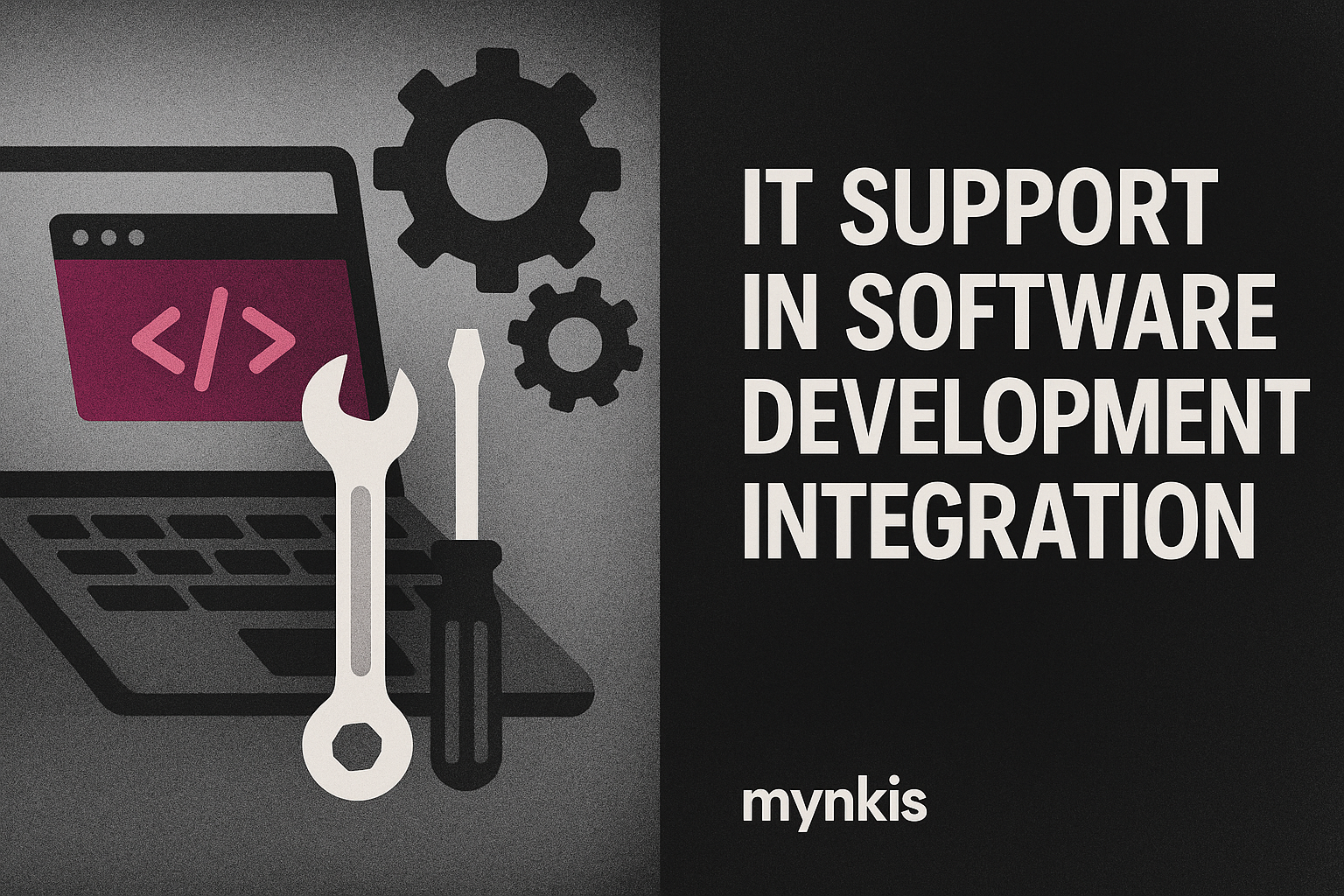Schedule a Demo
In the lifecycle of any software project, integrating effective IT support isn't just beneficial; it's absolutely essential. From the get-go, having a strong IT support system means we're not just debugging code as issues arise but are proactively managing the environment to prevent problems altogether. This proactive stance on IT support streamlines the entire software development process, leading to a smoother execution of projects from planning to deployment.
Let's dig into exactly how IT support shapes the software development journey. Primarily, IT support helps establish a robust infrastructure. From setting up servers to configuring networks, the groundwork laid by IT support is the backbone of efficient development operations. Without a doubt, this leads to quicker iterations and a more resilient software product once it hits the market.
Additionally, IT support isn't just about keeping the tech running smoothly. I've worked on numerous projects where IT personnel played a critical role in integrating development tools and ensuring the team could communicate effectively. This seamless integration cuts down on those all-too-common miscommunications that can stall progress.
The development process often encounters pitfalls, from performance glitches to integration snafus. Effective IT support mitigates these challenges with adept troubleshooting and efficient systems management. Through my experiences, I've seen firsthand how a well-supported project navigates hurdles more effectively than those left to flounder. A project without ample IT support might run into frequent delays and quality degradation, hampering the final deliverable.
When it comes to software development, especially for enterprise clients demanding robust solutions, the presence of IT support personnel ensures applications are both performing well and secure. Cybersecurity, while often seen as the domain of specialists, intersects greatly with IT support, protecting sensitive data from breaches during the development phase and post-deployment.
Developers thrive in environments where they can focus on coding without worrying about hardware failures or network bottlenecks. A story that comes to mind involves a project I worked on where an unforeseen server crash could've derailed our deadlines. However, because our IT support team was on top of things, they resolved the issue in hours, and our development team barely missed a beat. That's the power of supportive IT within software development; it removes obstacles so that developers can innovate and produce at their best.
The truth is, no two software projects are the same, and the IT support needed must reflect the unique challenges of each project. In one project where the emphasis was on rapid deployment, our IT support scaled up automated testing environments, allowing for quicker feedback loops. Another project, focused on legacy system integration, required more focused support in database management and system compatibility testing. This bespoke approach to IT support is vital for meeting project goals efficiently.
The impact of IT support isn't felt only during the development phase; it extends well into the life of the software. Early integration means fewer post-launch bugs and easier updates. I've led initiatives where early, consistent involvement from IT support led to a cleaner, more maintainable codebase, in turn benefiting both our team and the end-users who could rely on consistently performing applications.
Far from just being technical backstops, IT support teams can be invaluable assets to project management. Through effective resource management, they ensure everything from software licenses to hardware upgrades aligns with the project timeline. More than once, I've seen IT support spearheading the management of developmental tools, enhancing team productivity and project tracking beyond what anyone anticipated.
Collaboration is the fuel of efficient software development, and IT support plays a pivotal role here. By aligning tech resources with development needs, IT professionals facilitate a smoother workflow. Interestingly, an approach called 'IT as a Development Ally'—which I've implemented on various occasions—involved IT support sitting in on stand-ups to tackle technical impediments before they became problematic. This has solidified teamwork and opened the development process into a more transparent and agile venture.
IT support plays a indispensable part in maintaining the quality of a software product. From monitoring test environments to ensuring compliance with tech standards, their watchful eye means you're more likely to deliver a high-quality product.
Tech giants like Google and Microsoft offer shining examples of how vital a role IT support can play in the realm of software development, Google focuses on operational excellence with their GitOps model for managing and monitoring software reliably at scale. Meanwhile, Microsoft's, culture of high availability, underscores a relentless pursuit of up-time and infrastructure prowess, principles that are often transferable to software development projects of any size.
The evaluation of IT support within the development landscape needs clear metrics – uptime, resolution times, user satisfaction. And yes, while these metrics provide insight, in-person anecdotes and developer sentiment provide a qualitative understanding of the IT support efficacy. Personal experiences highlight a fundamental truth: where IT support shines, developer contentment soars, and projects prosper.
Change management is another unseen domain where IT support often exerts its quiet influence. As technologies evolve, IT support facilitates smooth transitions, ensuring team buy-in and minimum disruption. Based on available research, individual transitions vary, but consistency in communication from IT can make a vast difference in the adoption of new tools or updates in a development project.
Looking forward, the role of IT support in software development is only set to grow more integral, adapting to emerging technologies like AI and IoT. This anticipation requires proactive learning and tool adaptation from IT support teams, marrying age-old principles of excellent user service with the cutting-edge solutions developers implement daily. As we sail into uncharted technological territories, IT support will be at the helm, navigating these new waters.
